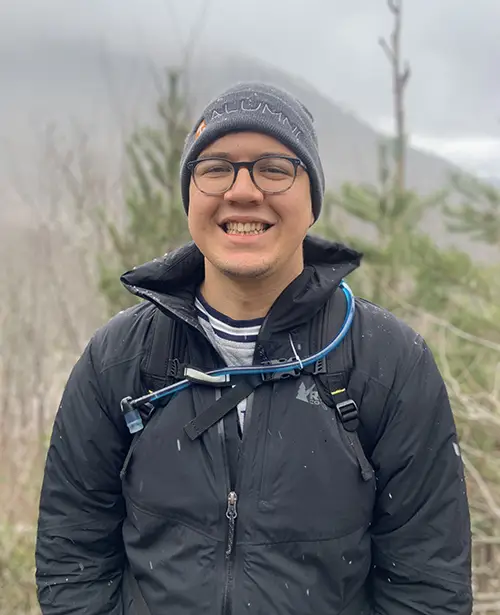Graduate Student Spotlight: Respectfully Disagreeing

In an age of social media, cable news, and hyper-partisanship, the act of engaging with those that one disagrees with seems harder than ever to practice. How, one wonders, can a democracy survive without a shared belief in civic discourse and its respect for different perspectives and a common good?
Questions such as this drive the teaching and research of Jake Buller-Young, a PhD student in the department’s Rhetoric, Writing, and Linguistics division. Working at the intersection of composition pedagogy, religious rhetoric, and civil discourse, Jake asks, “How do we strategically use language in ways that help us get things done collectively in a democracy?” Or, as he tells the hairdresser who asks him what he does, “How do we teach English 101 so that when we argue about politics, we don’t kill each other?”
If rhetoric is the art of using language to persuade or influence others, Buller-Young teaches his students to understand this process in collaborative and deliberative terms. Central to this approach are the rhetorics of listening and empathy. In his words, “I can’t persuade you if I don’t understand you, and I can’t understand you unless I listen to you.”
One of the ways he demonstrates the value of this is by asking his students to come up with policies on attendance and late work for the course. After deliberating in groups and as a class, they formulate policies in these areas that are sometimes stricter than the ones he would have developed on his own. As for navigating political and other differences, Buller-Young’s students report applying the skills he teaches them in relationships outside the classroom.
In recognition of his success in the classroom, Buller-Young was awarded the 2023 David A. Hambright Teaching Award for Graduate Students.
Having grown up in a Mennonite community in Kansas and spent four years as a missionary kid in West Africa, Buller-Young is also interested in exploring the issue of persuasion in the context of religious rhetoric. His 2022 journal article “You Are What You Love (to Eat): Mennonite Cookbooks and the Constitutive Rhetoric of Practice” looks at the way everyday activities such as cooking instill the values of communities in those who practice them. For this and other work, he received the John C. Hodges Award for Exceptional Scholarship by a Graduate Student.
Buller-Young’s dissertation applies his interest in civic discourse and deliberative democracy to the process of curricular intervention. Believing that the best way to get things done is to bring as many people as possible to the table, he’s designing a qualitative research project that brings English 101 instructors together in groups to determine “how we teach civic discourse to help our students productively argue about politics.” As always with Buller-Young’s teaching and research, diversity of perspective is what makes it all work.